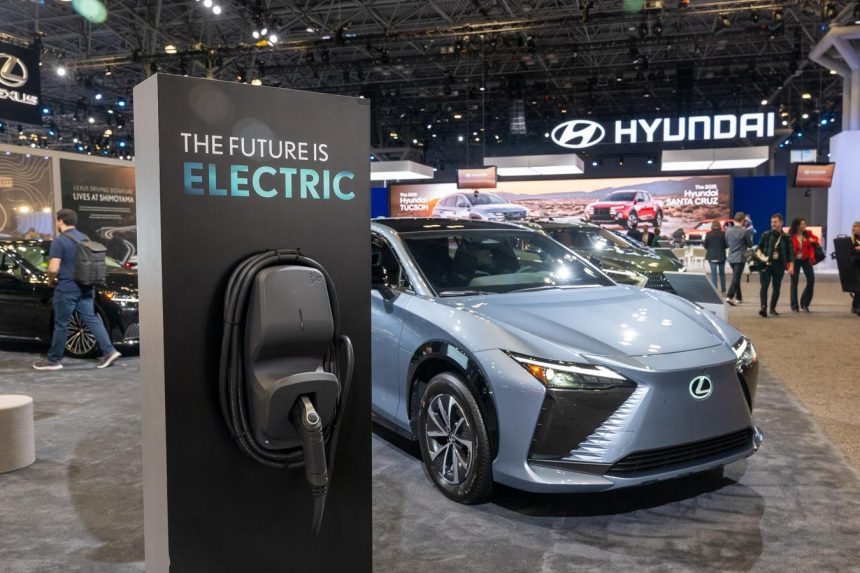The U.S. Department of Energy’s (DOE) recent $25 million investment in next-generation battery manufacturing signifies a crucial step towards fortifying America’s clean energy future and bolstering domestic manufacturing capabilities. This funding, distributed across eleven distinct projects, aims to revolutionize battery production by enhancing existing processes, developing cutting-edge machinery and equipment, and securing essential materials. The initiative not only empowers private sector innovation but also promises to create widespread economic opportunities for businesses of all sizes as the nation transitions away from fossil fuels. These next-generation batteries represent a significant leap forward, offering substantially higher energy storage capacity without relying on hazardous or polluting materials. Their applications extend far beyond electric vehicles, encompassing portable electronics, medical devices, and grid-scale energy storage, ensuring reliable power even during outages.
This investment underscores the Biden-Harris administration’s commitment to reclaiming America’s leadership in battery innovation. Building upon past successes, this initiative aims to enhance national security by reducing reliance on foreign supply chains while simultaneously creating long-term job opportunities for American workers. The DOE’s Advanced Materials and Manufacturing Technologies Office will oversee the disbursement and management of the funds, ensuring the projects align with the overarching goal of establishing robust domestic manufacturing capabilities for next-generation batteries. The projects are strategically divided into two primary areas: the development of advanced processes and machinery specifically designed for sodium-ion batteries, and the creation of smart manufacturing platforms to optimize overall battery production.
Sodium-ion batteries, an emerging technology, offer a promising alternative to conventional lithium-ion batteries. They utilize readily available and cost-effective sodium, mitigating supply chain vulnerabilities and price fluctuations associated with lithium. Investing in the development of specialized processes and machinery for sodium-ion battery production will position the U.S. at the forefront of this burgeoning field. This strategic focus not only fosters technological advancement but also contributes to greater energy independence and price stability in the long run. The parallel focus on smart manufacturing platforms aims to enhance efficiency, quality control, and overall productivity in battery production. These platforms leverage advanced technologies such as artificial intelligence, machine learning, and data analytics to optimize manufacturing processes, reduce waste, and improve the performance of the final product.
The collaborative nature of these projects further amplifies their potential impact. The DOE initiative fosters partnerships between academic institutions, small businesses, and larger corporations, creating a synergistic ecosystem that accelerates innovation and knowledge sharing. This collaborative approach ensures that diverse perspectives and expertise are brought to bear on the challenges of next-generation battery manufacturing, leading to more robust and comprehensive solutions. One example of this collaborative spirit is the $2.59 million grant awarded to Titan Advanced Energy Solutions, a Massachusetts-based company specializing in ultrasound-based battery cell inspection systems. This funding will enable Titan to develop an advanced cell inspection platform, significantly reducing manufacturing costs and improving quality control. Furthermore, Titan’s partnership with Harris Hill Automation, a veteran-owned business in Maine, underscores the commitment to supporting diverse suppliers and fostering regional economic growth.
This targeted investment aligns perfectly with the White House’s Investing in America agenda, which prioritizes building a sustainable and prosperous future for the nation. Recognizing that next-generation batteries will play a pivotal role in powering this future, the DOE’s initiative represents a critical step towards achieving this ambitious goal. By fostering innovation, strengthening domestic manufacturing, and creating high-quality jobs, this investment lays the groundwork for a cleaner, more resilient, and economically competitive America. The development of advanced battery technologies is not merely a technological pursuit; it is a strategic imperative with far-reaching implications for national security, economic prosperity, and environmental sustainability.
The transition to a clean energy future necessitates a fundamental shift in how we generate, store, and utilize energy. Next-generation batteries are essential to this transformation, providing the means to store renewable energy sources like solar and wind power, enabling the widespread adoption of electric vehicles, and ensuring a reliable and resilient power grid. By investing in the development and domestic manufacturing of these critical technologies, the U.S. is not only securing its own energy future but also positioning itself as a global leader in the clean energy revolution. This strategic move will create new economic opportunities, enhance national security, and contribute to a healthier planet for generations to come. The $25 million investment is a down payment on a future powered by American ingenuity and innovation, paving the way for a more sustainable and prosperous tomorrow.



